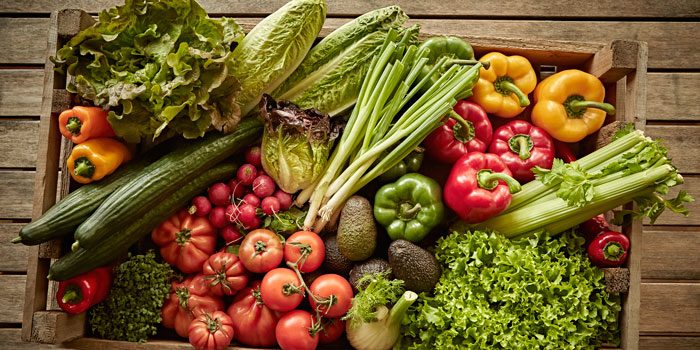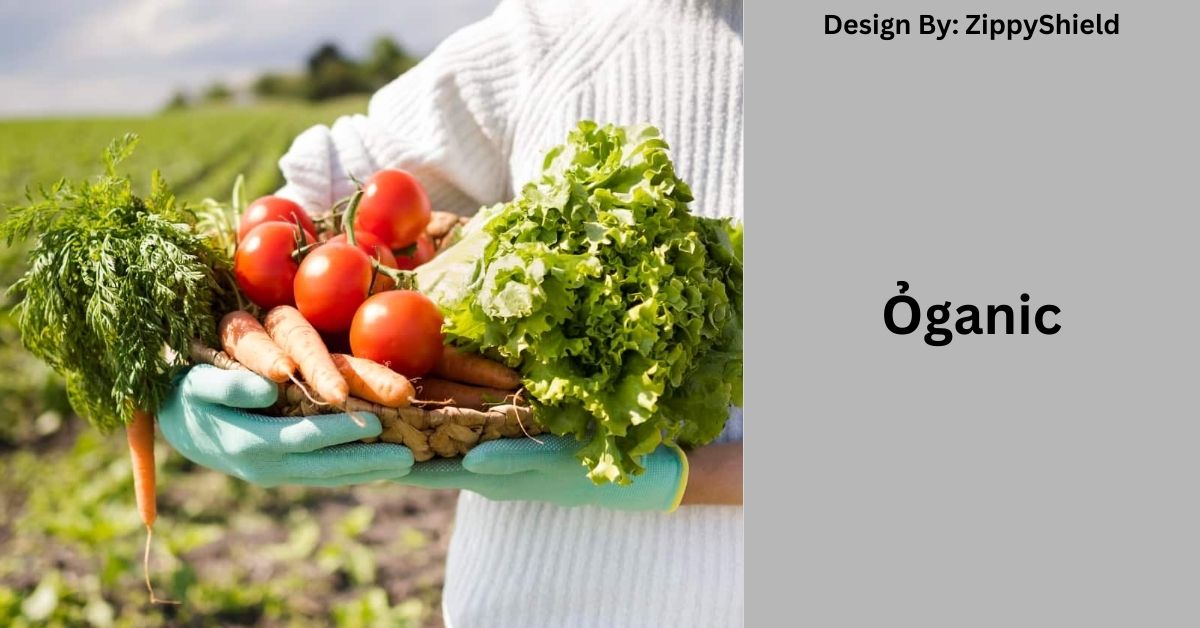Introduction:
In recent years, there has been a significant shift towards embracing organic products as consumers become more conscious of their health, environmental impact, and sustainability. This article explores the concept of Ỏganic, highlighting its benefits, challenges, and future prospects in the global market.
What is Ỏganic?

Ỏganic refers to products that are grown or produced using methods that do not involve synthetic pesticides, herbicides, or genetically modified organisms (GMOs). It emphasizes sustainable farming practices that prioritize soil health, biodiversity, and animal welfare.
Unlike conventional farming, which relies heavily on synthetic inputs to maximize yield, Ỏganic farming integrates natural processes to maintain ecological balance and support long-term sustainability.
Understanding Ỏganic:
Ỏganic farming revolves around principles such as crop rotation, composting, and biological pest control to maintain ecological balance and minimize external inputs.
By avoiding synthetic chemicals and GMOs, Ỏganic practices aim to create a closed-loop system where resources are recycled, and waste is minimized.
This approach not only promotes environmental benefits but also enhances the health and well-being of both consumers and farmers.
Why Choose Organic?
Consumers choose organic products for various reasons, including health benefits, environmental stewardship, and support for sustainable agricultural practices.
Choosing organic products supports a healthier ecosystem and reduces exposure to harmful chemicals typically used in conventional farming practices.
The decision to embrace Ỏganic reflects a growing awareness of the interconnectedness between personal health, environmental sustainability, and ethical food production.
The Benefits of Ỏganic Products:
Health Benefits:
Organic products are free from synthetic chemicals and pesticides, reducing the risk of pesticide residues in food and potential health impacts such as allergies, respiratory issues, and hormonal disruptions.
Studies have shown that consuming organic food may lower the risk of certain diseases and promote overall well-being due to reduced exposure to harmful substances.
Environmental Benefits:
Ỏganic farming fosters biodiversity through the preservation of natural habitats and the support of wildlife.By avoiding synthetic pesticides and fertilizers, organic practices reduce soil erosion, improve soil fertility, and enhance water quality.
Organic farms also contribute to climate change mitigation by sequestering carbon in the soil, thus reducing greenhouse gas emissions associated with conventional agriculture.
Economic Benefits:
Organic farming supports local economies by creating jobs, preserving rural communities, and reducing dependency on costly external inputs over time. While initial costs of organic certification and transitioning to organic practices may be higher, organic farmers often benefit from higher profit margins per acre due to premium prices for organic products and reduced input costs over time.
Read: Online Game Event lcfgamevent – Evolution of Gaming Events!
The Challenges of Ỏganic Farming:
Certification and Regulation:
Acquiring organic certification can pose financial and time challenges, particularly for small-scale farmers.Stringent regulations ensure compliance with organic standards but may pose barriers to entry for new farmers and those in developing regions.
Improving accessibility to certification and streamlining the certification process could encourage more farmers to adopt organic practices.
Market Competition:
Ỏganic products often face competition from conventional alternatives that may be cheaper due to economies of scale and government subsidies for conventional agriculture.
Educating consumers about the benefits of organic products and the true cost of conventional farming can help level the playing field and increase demand for organic options.
Consumer Education:
Educating consumers about the benefits of organic products and the certification process is crucial for market expansion and consumer trust. Many consumers may be unaware of the differences between organic and conventional products or the rigorous standards organic farmers adhere to.
Transparent labeling and educational initiatives empower consumers to make educated decisions that promote sustainable agriculture.
Impact on Human Health:
Reduced Exposure to Chemicals:
Organic food reduces exposure to synthetic pesticides and herbicides linked to adverse health effects, promoting overall well-being and reducing the cumulative impact of chemical exposure over a lifetime.
Choosing organic may contribute to long-term health benefits by minimizing the intake of harmful substances commonly found in conventional food production.
Nutritional Benefits of Organic Food:

Research suggests that organic produce may have higher levels of certain nutrients, antioxidants, and beneficial compounds compared to conventionally grown counterparts.
Factors such as soil health, crop diversity, and farming practices contribute to the nutritional quality of organic food, making it a preferred choice for health-conscious consumers.
Long-Term Health Implications:
The decision to consume organic products can have long-term health implications, including reduced risks of chronic diseases associated with pesticide exposure and improved overall nutritional intake.
By supporting organic farming practices, individuals can contribute to their own health and well-being while supporting sustainable agricultural systems.
Economic Impacts:
Organic farming’s economic impacts are substantial, offering higher profit margins per acre for farmers due to premium prices and reduced input costs over time. This sector contributes to local economies by creating jobs and supporting rural communities, while consumer willingness to pay a premium reflects growing demand for sustainable and high-quality agricultural products.
Market Growth of Organic Products:
The organic market has experienced steady growth as consumer demand for healthier and more sustainable options continues to rise globally. Increased awareness of the environmental and health benefits of organic products has driven market expansion, leading to greater availability and variety of organic options in supermarkets and specialty stores.
Economic Benefits for Farmers:
Organic farming can offer higher profit margins per acre for farmers due to price premiums and reduced input costs over time. By adopting organic practices, farmers may also benefit from improved soil health, reduced dependency on synthetic inputs, and resilience to climate change impacts, enhancing their long-term economic sustainability.
Price Premiums and Consumer Willingness to Pay:
Consumers are often willing to pay a premium for organic products due to perceived health benefits, environmental stewardship, and quality assurance.
The willingness of consumers to invest in organic options reflects growing awareness of food production practices and their impact on personal and planetary health.
Challenges in Organic Farming:
Challenges in organic farming include higher production costs due to labor-intensive practices and organic certification expenses. Small-scale farmers may find it difficult to afford certification, limiting their market access.
Competition from conventional agriculture, supported by subsidies and economies of scale, further complicates the economic landscape for organic farmers.
Higher Production Costs:
Organic farming practices can be more labor-intensive and require careful management of resources, leading to higher production costs compared to conventional methods.
While initial investments in organic certification and transition may be daunting, long-term benefits such as improved soil fertility and reduced environmental impact can offset these costs over time.
Certification Barriers:
Meeting organic certification standards requires strict adherence to guidelines regarding soil health, pest management, and record-keeping. Small-scale farmers and those in developing regions may face challenges in obtaining and maintaining organic certification due to cost, administrative burden, and lack of local support systems.
Market Competition:
Conventional agriculture benefits from established infrastructure, economies of scale, and government subsidies that reduce production costs and market prices.
Organic farmers must navigate competitive challenges while maintaining organic integrity and meeting consumer expectations for quality and sustainability.
The Future of Ỏganic:
Innovations in Organic Farming:
Advancements in technology, research, and agricultural practices continue to enhance the productivity, efficiency, and sustainability of organic farming.
Innovations such as precision agriculture, integrated pest management, and organic soil amendments contribute to the resilience and scalability of organic production systems.
Policy Support:
Government policies, subsidies, and incentives that promote organic farming practices can accelerate the adoption of Ỏganic and support sustainable agricultural development.
By investing in research, infrastructure, and education, policymakers can create an enabling environment for organic farmers to thrive and meet growing consumer demand for organic products.
FAQ’s:
1. What does organic farming mean?
Organic farming refers to agricultural practices that avoid synthetic chemicals and emphasize sustainable methods like crop rotation and composting.
2. Are organic products healthier?
Organic products are generally free from synthetic pesticides and may have higher levels of certain nutrients and antioxidants compared to conventionally grown counterparts.
3. Why are organic products more expensive?
Organic farming practices can be more labor-intensive and involve higher production costs due to certification requirements and limited economies of scale.
4. How can I identify organic products?
Look for organic certification labels like USDA Organic or EU Organic, which indicate that products meet strict organic standards.
5. What are the environmental benefits of organic farming?
Organic farming promotes biodiversity, reduces soil erosion, and minimizes water pollution by avoiding synthetic inputs.
Final Thoughts:
Ỏganic represents not just a choice in products but a commitment to a sustainable future. By supporting organic agriculture, individuals contribute to healthier ecosystems, resilient communities, and improved personal well-being. As global awareness of environmental and health impacts grows, the demand for organic products is expected to continue rising, driving innovation and positive change across the agricultural sector.
Read More:



